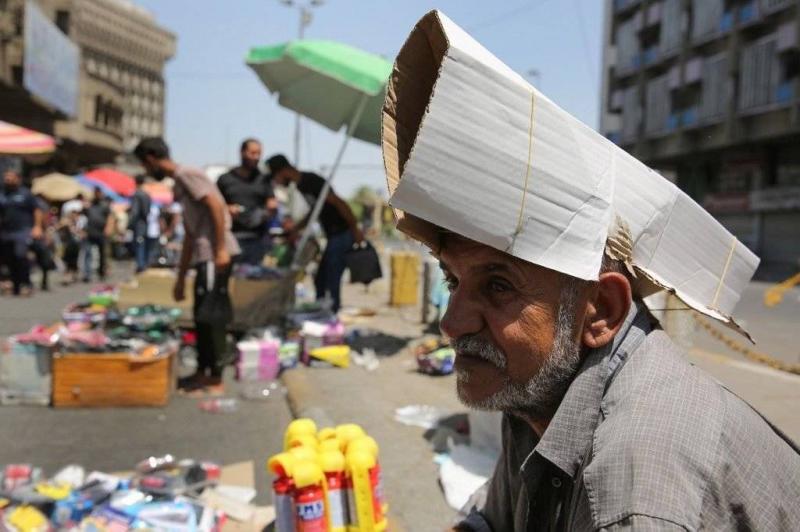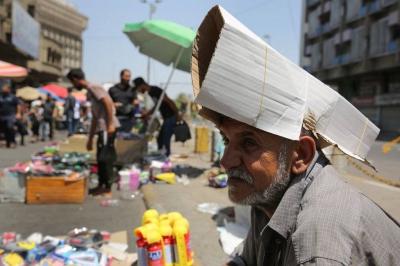The meteorologist Wathiq Al-Salami has confirmed that there will be a "severe" heat wave at the end of the first third of July, reaching as high as 50 degrees Celsius in northern parts of the country, according to the American weather model. Areas in Iraq, especially in the central and southern regions, have recorded high temperatures exceeding 50 degrees Celsius in some cities, marking the highest globally, particularly in Amarah and Basra.
The Civil Defense Directorate recommends taking necessary precautions to prevent fires and incidents due to the heat, including avoiding going out in the middle of the day, wearing hats to protect the scalp from the sun, and not leaving perfumes or chemicals inside vehicles.
The United Nations states that Iraq is one of the five countries in the world most affected by the impacts of climate change, which has significantly impacted population movements. Some Iraqi provinces, particularly in the south, such as Dhi Qar, have reduced official working hours for employees.
During a visit to Iraq last year, UN High Commissioner for Human Rights Volker Turk warned that the drought and rising temperatures in Iraq serve as a "warning" to the entire world, according to AFP. Turk recalled a phrase used by UN Secretary-General António Guterres, stating that the world has entered an "era of boiling," adding that "in Iraq, we live it and see it every day."
Throughout the past week, Baghdad recorded the highest temperatures for a city in the world, according to the weather tracking website Time And Date. Nine Iraqi cities were listed among the top 10 hottest cities globally, while 13 Iraqi cities appeared on the list of the top 15 hottest cities worldwide, as compiled by Eldorado Weather.
Baghdad recorded 40 degrees Celsius at midnight on Sunday, making it hotter than other cities that recorded lower temperatures at midday, according to the site. In the afternoon, Baghdad recorded 51 degrees Celsius, a temperature at which doctors warn against working under the sun, according to media reports.
In this oil-rich country, the electricity sector is suffering from decay, providing only a few hours of power throughout the day. Some rely on electric generators, but this costs around 150,000 dinars per month for each family and may not be available to everyone.




